Annual reports
2022 Annual Report
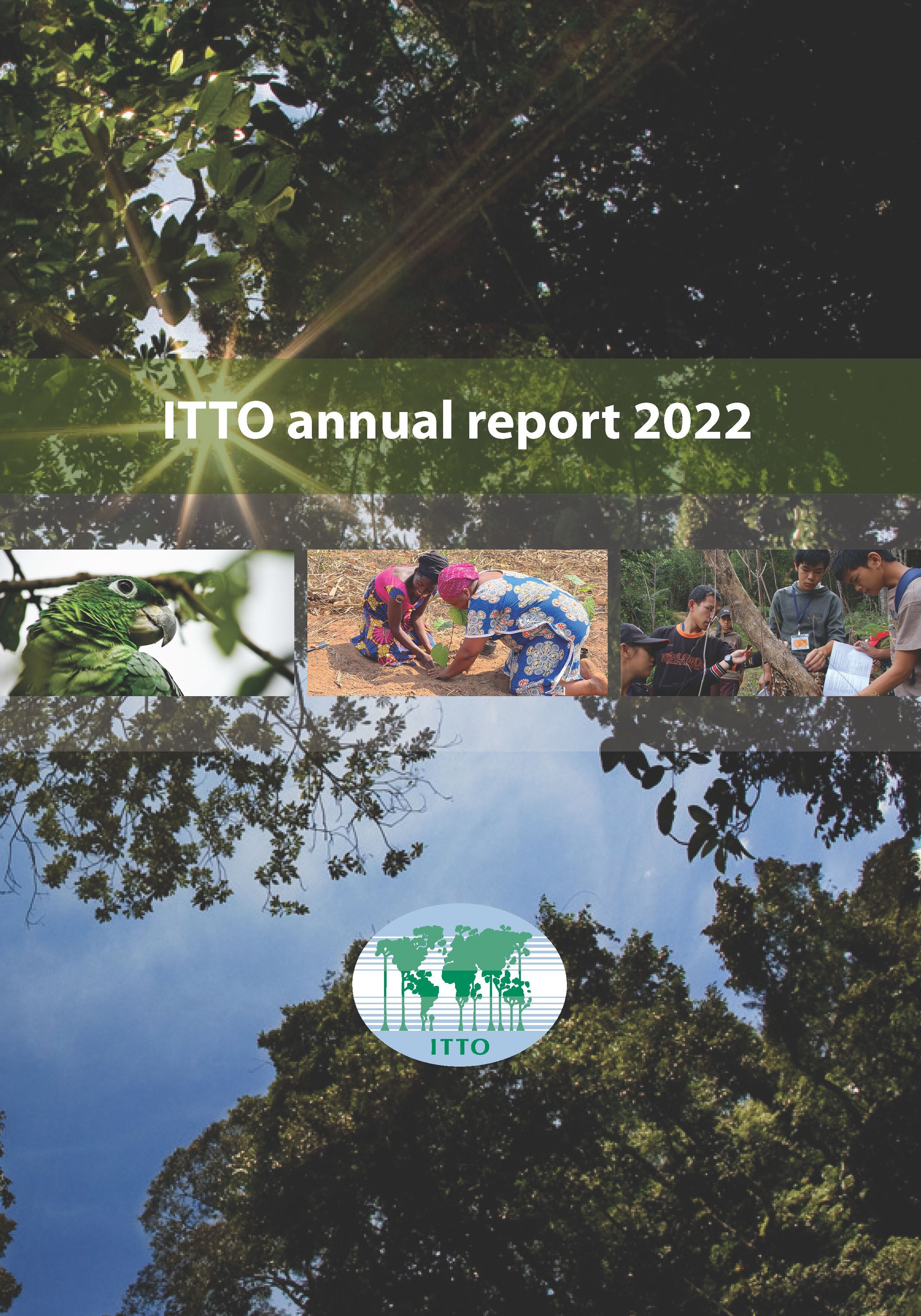
In 2022, ITTO brought new energy to its efforts to alert the world about the importance of sustainable tropical forest management and legal and sustainable wood trade in tackling global challenges. At every opportunity, ITTO highlighted the indispensable and central role that sustainable tropical forest management and responsible tropical wood trade must play in our journey towards a sustainable future. As illustrated in this annual report, the Organization’s catalytic projects continued to showcase the incredible potential of sustainable forestry for transforming communities, which its policy work had global impacts. ITTO worked with collaborating institutions on topics as diverse as forest education, the trade in endangered species, and production and trade data, showing its expertise, versatility and reach.
2021 Annual Report
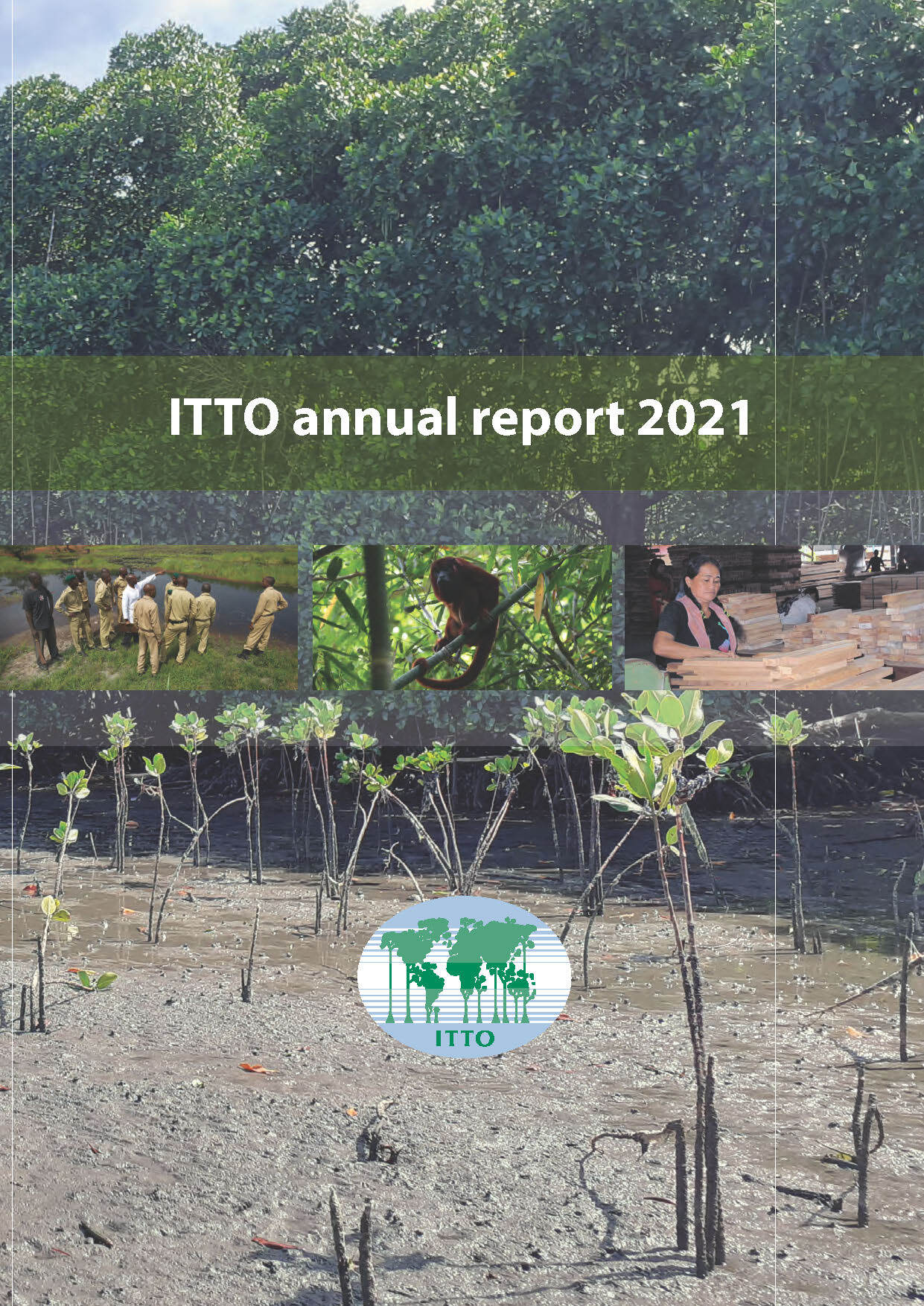
2021 continued to yield tough times for the planet. In ITTO’s area of work, the tropical forest sector, many governments, people and businesses faced severe impacts from the COVID-19 pandemic, with considerable disruption to supply chains and livelihoods, compounded by movement restriction controls and closed borders across the globe. Threats to tropical forests posed by climate change and other challenges continue to increase, complicating efforts to sustainably manage and conserve these vital resources. Nevertheless, ITTO was able to achieve a great deal during the year, as summarized on this report.
2020 Annual Report
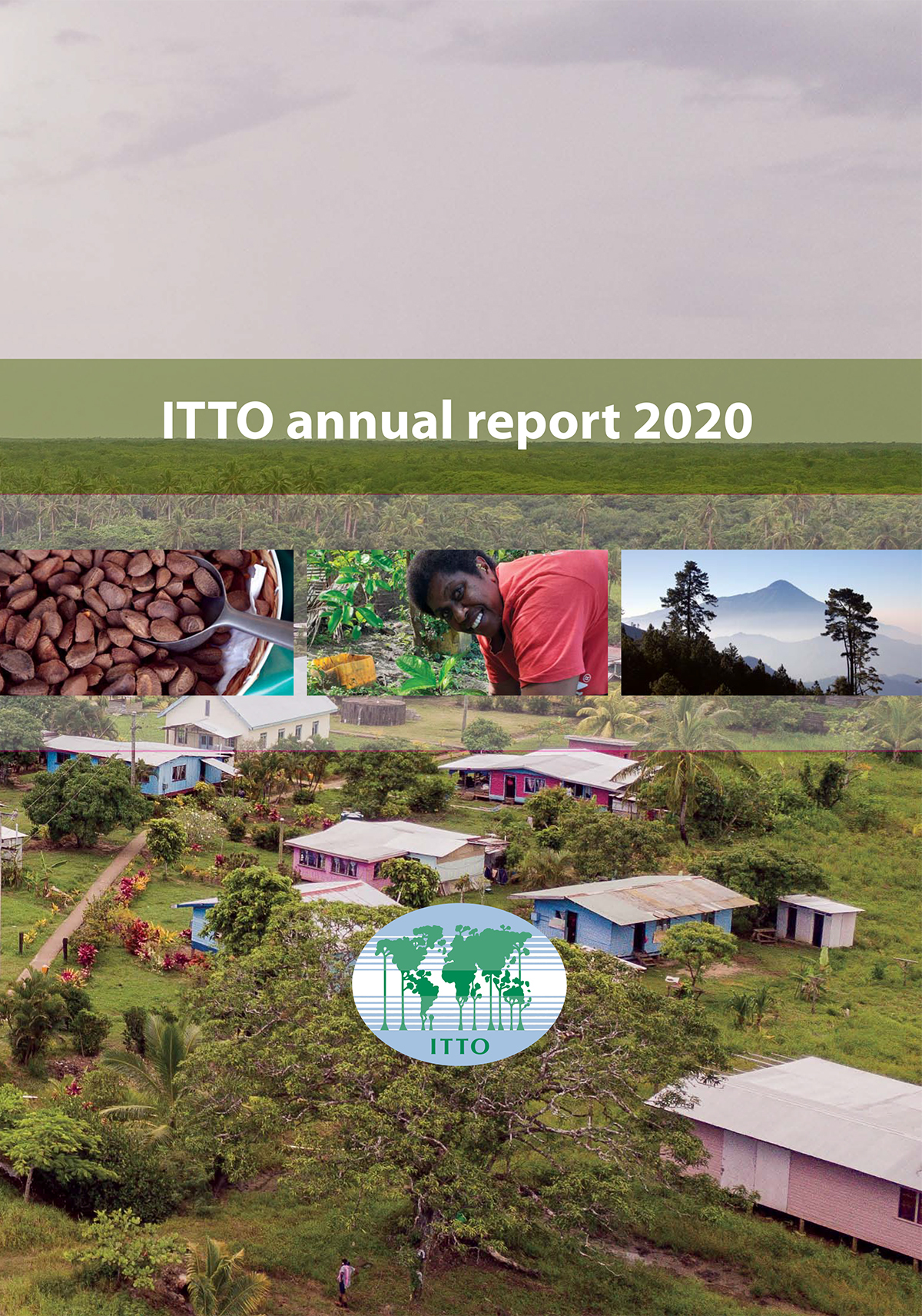
2020 was a challenging year for everyone worldwide, with the COVID-19 pandemic causing millions of deaths and widespread economic hardship. It was a reminder of how interconnected we all are and, therefore, how vital it is that we work together globally to address our common challenges. There is no question that the pandemic had massive impacts on the tropical forest sector—people, industries and markets—in 2020. It is also clear that, through its complementary work to increase market transparency, provide policy guidance and encourage best practices on the ground, ITTO helped its member countries deal with the crisis as it related to the forest sector. ITTO itself faced many challenges in 2020 due to the pandemic, including having to convene our first virtual session of the International Tropical Timber Council. Nevertheless, by working collaboratively, we achieved a great deal, as reflected in the pages of this annual report.
2019 Annual Report
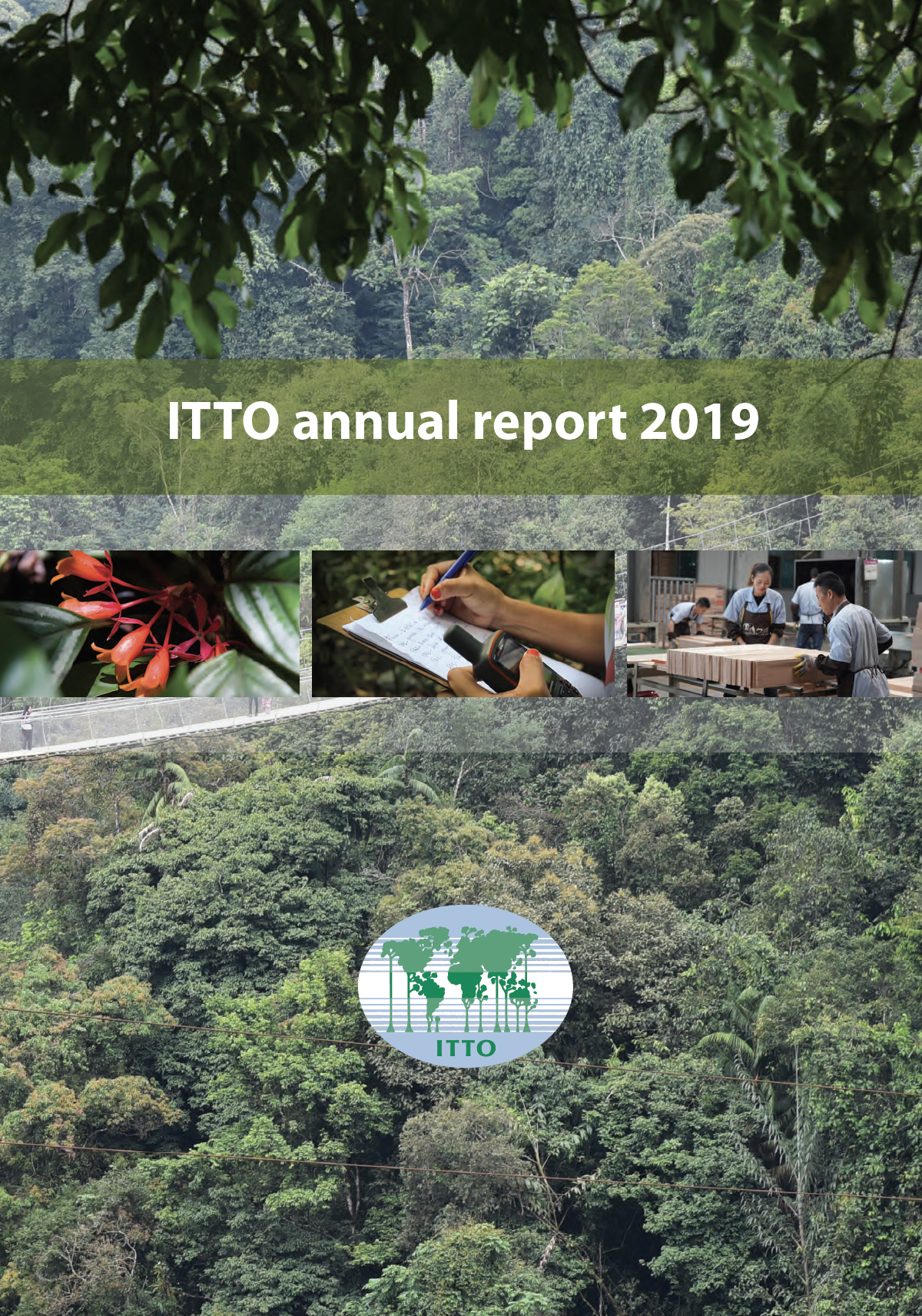
ITTO took significant strides in 2019. It achieved greater visibility by delivering tangible results on various fronts relevant to its mission while contributing to the Sustainable Development Goals and the Global Forest Goals. One highlight being the active promotion of, and capacity building on, legal and sustainable timber supply chains—setting a new approach that connects sustainable forest management from trees in the forest along supply chains to shelves in the marketplace while contributing to a biocircular economy and to climate-change adaptation and mitigation and biodiversity conservation. This annual report also illustrates the other highlights and noteworthy activities of 2019.
2018 Annual Report
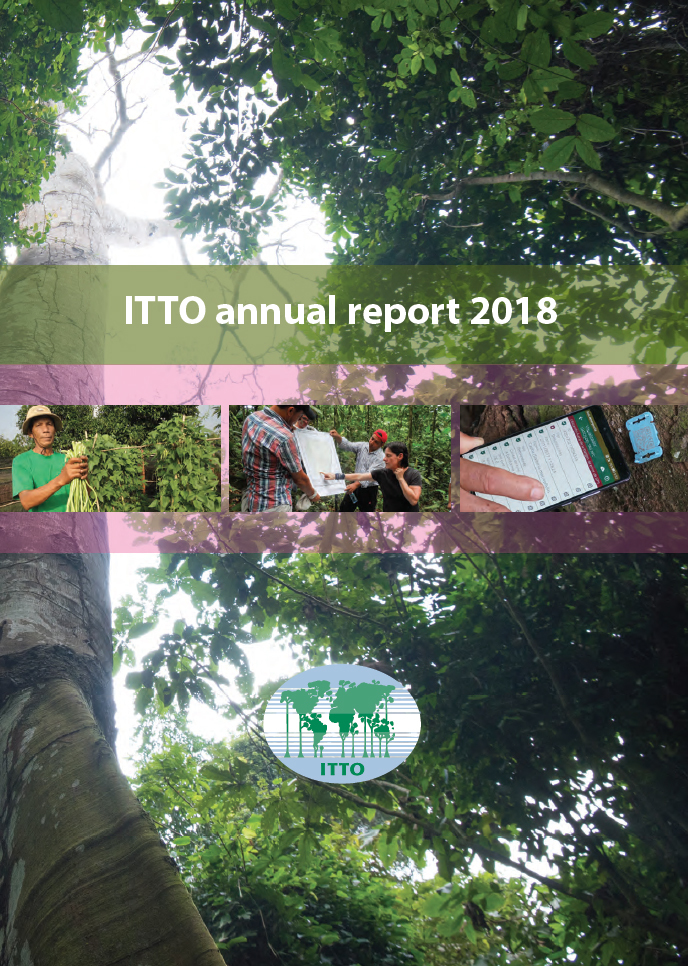
ITTO made progress on many fronts in 2018 in fulfilling its mission. There is certainly much to be done. Forest degradation is advancing rapidly, especially in the peripheries of the big tropical rainforests and in drier areas where people must satisfy their daily needs for wood and non-wood products. It is clear that, to maximize the role of productive tropical forests in sustainable economic development, we must address a wide range of factors, such as daily demand for woodfuel and timber among local communities, a lack of expertise in forestry management, a failure to invest, illegal practices, and reduced forest vitality due to climate change. As summarized in this annual report, ITTO is tackling such issues in both its policy work and its project programme.
2017 Annual Report
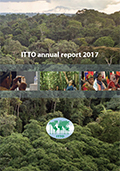
2017 was the first year with Gerhard Dieterle serving as ITTO 's Executive Director, and the Organization has made good progress in strengthening the governance and transparency of the Organization and regaining the confidence of donors. The course of action has also been set for ITTO to fulfill its mandate of promoting the expansion and diversification of international tropical timber trade from legal and sustainable sources through the adoption of ITTO’s Biennial Work Programme for 2018–2019 and its policy guidelines on gender equality and the empowerment of women; strengthening the participation of civil society and the private sector in the work of the Organization; and the comprehensive revision of ITTO’s financial infrastructure.
2016 Annual Report
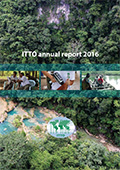
2016 was an important year in the history of ITTO. It was marked by efforts to overcome the consequences of the financial impairment of funds, which led to a series of decisions by the International Tropical Timber Council aimed at strengthening the Organization’s governance and transparency. Despite the challenges, ITTO projects and activities were fruitful in 2016 in promoting the conservation, sustainable management, use and trade of tropical forest resources. This annual report highlights clear examples of improvements in sustainable forestry in the tropics, ranging from the development of timber identification and tracking in Africa; to the management of a transboundary biodiversity conservation area and associated improved livelihoods in Southeast Asia; to enhanced timber processing and timber industries in Latin America; to the updating of guidelines for sustainable forest management.
2015 Annual Report
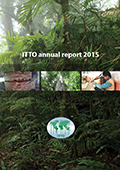
ITTO made significant progress in 2015 in fulfilling its mandate of promoting the conservation and sustainable management, use and trade of tropical forest resources, implementing a wide range of targeted projects and activities and contributing strongly to productive partnerships with diverse organizations and stakeholders. 2015 was also an immensely challenging year for the Organization, with a declining trend in funding for projects and activities, the failure to appoint a new Executive Director, and—most serious of all—an impairment of investments made in 2013 and 2014, leading to the loss of a significant amount of the Organization’s resources for funding projects. The Organization continued to expand in 2015, with the accession of Croatia and Thailand to the International Tropical Timber Agreement (ITTA) 2006, bringing ITTO’s membership to 72, its largest ever. The 2015 annual report also provides insights into ITTO’s work through field projects, the thematic programmes and other activities, which aimed at sustaining tropical forests.
2014 Annual Report
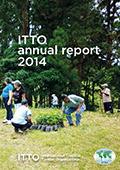
ITTO and its members made significant progress in 2014 in its policy work and field projects and in setting foundations for the future. The Organization also expanded: with the accession of the Central African Republic, Suriname and Viet Nam to the International Tropical Timber Agreement 2006, ITTO’s membership grew to 70, its largest ever. Milestones in policy work in 2014 included the adoption of the Voluntary guidelines for the sustainable management of natural tropical forest, the publication of the policy brief Rewarding the service providers (an outcome of an international forum on payments for the environmental services of tropical forests held in April), and the completion of two technical studies, one on the economic impacts of government procurement policies and the other on the quantification of carbon benefits from ITTO projects. The 2014 annual report also provides insights into ITTO’s work through field projects, the thematic programmes and other activities, which aimed at sustaining tropical forests.
2013 Annual Report
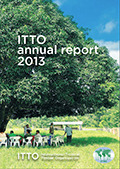
2013 was the first year in which ITTO operated under the modalities established by the ITTA, 2006. We resumed publication of two flagships, the Tropical Forest Update and the Tropical Timber Market Report, thus providing valuable information to our stakeholders on sustainable forest management and the tropical timber trade. In this year with the accession of Brazil, Colombia and Costa Rica to the International Tropical Timber Agreement (ITTA), 2006, ITTO’s membership grew to 67, its largest ever number, and further increases are expected. The year was also distinguished by work carried out in valuable partnerships between ITTO and several institutions such as The Secretariat of the Convention on International Trade in Endangered Species of Wild Fauna and Flora, The Food and Agriculture Organization of the United Nations, the International Technical Tropical Timber Association, the Japan International Cooperation Agency, the Secretariat of the Convention on Biological Diversity, the Asia–Pacific Forest Network for Sustainable Forest Management and Rehabilitation, the international Partnership for the Satoyama Initiative, and BirdLife International, among others. On the ground, ITTO projects and thematic programmes provided major benefits to our stakeholders, such as, improving sustainable forest management in Africa through the implementation of the ITTO/ATO principles, criteria and indicators for SFM; the characterization of 21 lesser-used timber species in Mexico and Peru; training on the sustainable harvesting and processing of non-timber forest products by local communities in the Philippines; improve the management and use of bamboo by local communities in northwest Peru; adoption of timber tracking and chain of custody practices by medium-sized enterprises in Ghana; etc. ITTO made progress in 2013 on a range of other topics, such as preparing its strategy to improve knowledge management to tap the wide experience it has acquired in implementing sustainable forest management, hence laying the foundation for even greater impacts in the future. The 2013 Annual Report provides details of these and other important activities undertaken by ITTO during the year.
2012 Annual Report
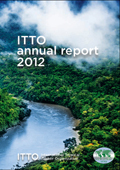
During 2012, ITTO focused on its course of action in the upcoming years, in particular after the entry into force of the International Tropical Timber Agreement, 2006 (ITTA 2006). In this context, the Organization adopted a new Strategic Action Plan for the years 2013-2018 and undertook a thorough evaluation of the ITTO Thematic Programmes which are now fully incorporated in the work of the Organization under the ITTA 2006. In 2012 ITTO also carried out training on improving forest law enforcement and timber tracking technologies, efficient wood processing technologies, forest statistics, and implementing criteria and indicators for sustainable forest management. The Organization also published a report as part of its Technical Series on improving resilience of the tropical timber sector to the impacts of global and regional economic and financial crisis. During the course of the year ITTO continued to actively collaborate with other international organizations and institutions associated with promoting sustainability of tropical forests, in particular with JICA, the CBD and CITES. In 2012 the International Tropical Timber Council declared as completed 18 projects and three pre-projects; reviewed the implementation of 68 ongoing projects and six pre-projects; and provided financing for nine new projects, one new pre-project, three operational projects, as well as for the ITTO-CITES Programme, The Freezailah Fellowship Fund, and activities to be implemented under the Biennial Work Programme 2013-2014. The 2012 Annual Report provides details of these and other important activities undertaken by ITTO during the year.
Annual Report 2011
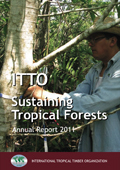
2011 was an eventful year for ITTO. It was proclaimed by the United Nations as the International Year of Forests, with a year-long programme for its commemoration coordinated by the UNFF Secretariat. It also marked the 25th Anniversary of the establishment of ITTO and also marked the entry into force of the International Tropical Timber Agreement 2006. In June 2011, ITTO launched its second report on “The Status of Tropical Forests Management, SFM Tropics 2011”. During the course of the year ITTO continued its collaboration with other international organizations and institutions associated with the promotion of tropical forests, in particular with members of the Collaborative Partnership on Forests (CPF) in various activities to celebrate the International Year of Forests. A commemorative ceremony celebrating the 25th Anniversary of the establishment of ITTO was jointly organized in Yokohama, Japan, on 28 October 2011 by ITTO, the City of Yokohama and the Ministry of Foreign Affairs of Japan, in collaboration with the Japan Organizing Committee for the International Year of Forests. The event included a symposium on “Celebrating a Quarter Century of Sustaining Tropical Forests.” The 2011 Annual Report provides details of these and other important activities of ITTO during the year.
Annual Report 2010
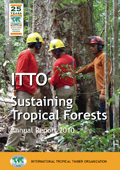
The year 2010 was very eventful for ITTO. In addition to its regular programme of project and policy work, the pending entry into force of the ITTA, 2006 was a major preoccupation of the Organization. The Organization continued its active involvement in the international debate on sustainable tropical forest management. ITTO actively participated in commemorating the International Year of Biodiversity, as well as collaborating with other international organizations on events and activities as well as signing of MoUs to foster further collaboration. The Organization also improved cooperation with the private sector during the year, including with pharmaceutical companies involved in the exploitation of forest species included in CITES appendices. Two additional pilot Thematic Programmes on "Community Forestry and Management" (CFME) and on "Trade and Market Transparency" (TMT) were launched and a second call for proposals was issued for the Thematic Programme on Reducing Deforestation and Forest Degradation and Enhancing Environmental Services (REDDES). The 2010 Annual Report provides details of these and other important activities of ITTO during the year.
Annual Report 2009
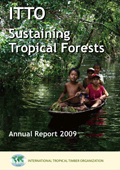
In 2009, tropical forests continued to attract attention, often dominating the international debate on forests. ITTO, the only intergovernmental organization operating under a legally binding agreement to promote the conservation and sustainable management, use and trade of tropical forest resources was not left out of these debates. The Organization actively participated in many international fora and continued its cooperation with a number of international institutions, in particular members of the Collaborative Partnership on Forests (CPF). Collaborations continued during 2009 with organizations such as FAO, UNFF, IUCN, CBD and CITES. ITTO’s field-oriented project portfolio, together with its active involvement in important international conferences and meetings as detailed in the 2009 Annual Report, placed it at the forefront of activities to promote the sustainable management of tropical forests.
Annual Report 2008
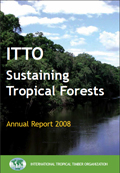
The Year 2008 was very significant to ITTO in many respects. The Organization was at a cross road in its development. It had forged a new Agreement with an expanded focus on environment, trade and development which also holds out hope for additional financial resources, thus raising the expectations of many member countries. As the Organization negotiated the transition from the ITTA, 1994 to the ITTA, 2006 it had to carry out stock taking of its operations under the ITTA, 1994 and examine future operational modalities under the ITTA, 2006. This re-ignited the debate on the issue of frequency and duration of Sessions of the Council and Committees, the functions of the Committees, financing the work of the Organization and the ITTO Project Cycle.
Annual Report 2007
Annual Report 2006
Annual Report 2005
Annual Report 2004
Annual Report 2003